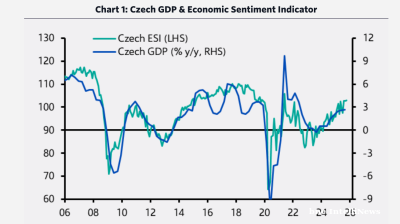The headline seasonally adjusted IHS Markit Russia Manufacturing PMI dropped to a six-month low of 46.3, down from 46.9 in October, as Russia’s post-lockdown economic recovery stalls.
“The latest reading signalled the sharpest deterioration in operating conditions since May, albeit much slower than April's nadir (31.3). November data indicated that the rate of contraction accelerated for the second month running as the manufacturing sector entered a second phase of decline since the coronavirus disease 2019 (COVID-19) outbreak,” Markit said in a note.
PMI data signalled another monthly contraction in the health of the Russian manufacturing sector, which has been struggling all year as a result of multiple economic shocks.
“The overall deterioration largely stemmed from weak client demand and a faster fall in production. Meanwhile, firms shed workers at a strong pace amid a further decrease in backlogs of work,” Markit reported.
On the inflation front, input costs rose markedly as supplier shortages and greater transportation fees drove prices higher.
As a result, firms sought to partially pass on higher costs to clients through the fastest rise in charges since February 2019.
New orders fell at their sharpest rate for six months. Panellists stated that demand was dampened by ongoing COVID-19 restrictions. The decline was broadly driven by domestic demand, however, as new export orders rose at their quickest rate since December 2018.
Lower production requirements reportedly led to a further reduction in workforce numbers in November as pressure on capacity waned. Unemployment is currently double the rate before the crisis, at 6.3% of the population. The rate of job shedding was the fastest for four months in November.
The depletion in staffing numbers was also linked to lower backlogs of work. Firms were better able to process outstanding business due to the drop in client demand.
Inflationary pressures also ticked up notably in November. Inflation is currently running at 3.7% but analysts believe it will rise to 4.2% by the end of the year, just above the Central Bank of Russia (CBR) guidance level of 4%, before falling again in the new year.
“The pace of increase in cost burdens was marked, and the sharpest since February 2015. Higher input prices were commonly linked to supplier shortages of raw materials and unfavourable exchange rate movements. Firms were still able to partially pass on greater costs to clients, however. The rate of output charge inflation was the quickest since February 2019,” Markit said.
Supply chain disruptions continued to cause further delays to suppliers' delivery times in November, as transportation issues were exacerbated by COVID-19 border restrictions. That said, manufacturers reduced their input buying sharply amid subdued client demand. Inventories were also streamlined across the manufacturing sector, although the rates of contraction in pre- and post-production stocks have eased since October.
Finally, business confidence improved slightly in November as firms noted hopes of a return to more substantial demand over the coming year. The degree of optimism was still below the series average, as the global economic downturn and pandemic weighed on business sentiment, Markit reported.
Data

October PMI shows little light at end of tunnel for Turkish manufacturing
Currency weakness and subdued demand plague producers in 19th consecutive month of contraction.

Uzbekistan’s annual inflation edges down to 7.8% in October
Lowest reading posted since 2017. Central bank's year-end forecast is 8%.

Official Turkish inflation creeps down 0.4pp to 32.9%, complaints over high real rates growing louder
Finance industry pushing for pause in monetary easing, but real economy actors and exporters are hurting.

Russia’s manufacturing PMI falls to its lowest level since May 2022 in October
Russia’s manufacturing sector saw a deeper contraction in October, with output, new orders, and business confidence all weakening, according to the latest Purchasing Managers’ Index (PMI) data from S&P Global, published on November 1.



